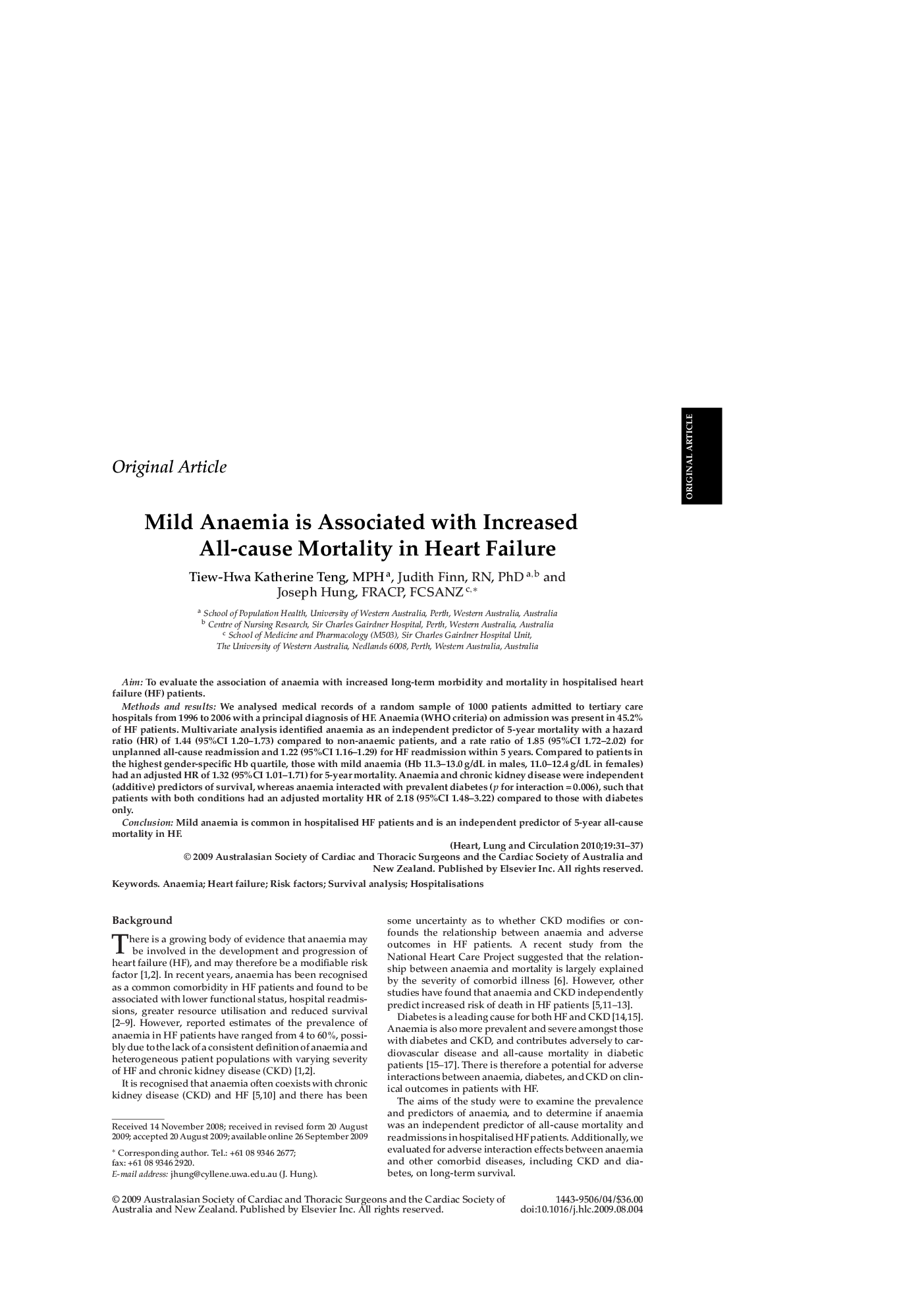| Article ID | Journal | Published Year | Pages | File Type |
|---|---|---|---|---|
| 2918920 | Heart, Lung and Circulation | 2010 | 7 Pages |
AimTo evaluate the association of anaemia with increased long-term morbidity and mortality in hospitalised heart failure (HF) patients.Methods and resultsWe analysed medical records of a random sample of 1000 patients admitted to tertiary care hospitals from 1996 to 2006 with a principal diagnosis of HF. Anaemia (WHO criteria) on admission was present in 45.2% of HF patients. Multivariate analysis identified anaemia as an independent predictor of 5-year mortality with a hazard ratio (HR) of 1.44 (95%CI 1.20–1.73) compared to non-anaemic patients, and a rate ratio of 1.85 (95%CI 1.72–2.02) for unplanned all-cause readmission and 1.22 (95%CI 1.16–1.29) for HF readmission within 5 years. Compared to patients in the highest gender-specific Hb quartile, those with mild anaemia (Hb 11.3–13.0 g/dL in males, 11.0–12.4 g/dL in females) had an adjusted HR of 1.32 (95%CI 1.01–1.71) for 5-year mortality. Anaemia and chronic kidney disease were independent (additive) predictors of survival, whereas anaemia interacted with prevalent diabetes (p for interaction = 0.006), such that patients with both conditions had an adjusted mortality HR of 2.18 (95%CI 1.48–3.22) compared to those with diabetes only.ConclusionMild anaemia is common in hospitalised HF patients and is an independent predictor of 5-year all-cause mortality in HF.
